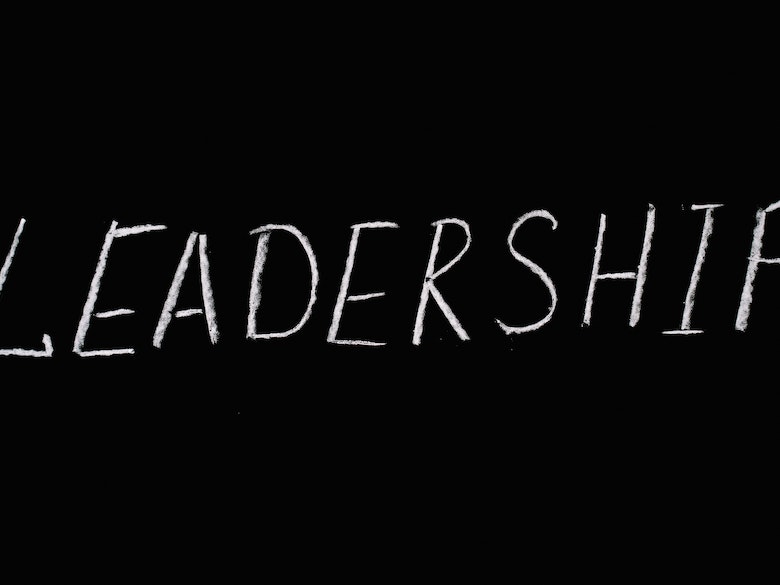I am a person who loves personal and leadership development. If one was to look at my bookshelf, it would be evident, personal and leadership development are topics I am passionate about. I love to study leadership. So much so, I obtained a master’s degree in Organizational Leadership. As a pastor, business owner and coach, it is important to me, to not only learn about these subjects in order to help my clients or parishioners, but it is also important for me in who I am as a person. How can be a leader of people effectively if I have not worked on myself first?

When we study and evaluate leaders, we often look at who the person is in relation to the team they lead or the organization they work for. We are concerned about the type of leadership they provide to their team. However, before the person can lead others well, the individual should know him or herself first. The named leader needs to know their motives, their strengths and weaknesses, the areas they may need to develop, etc. Effective leadership development should begin with personal development.

What is Personal Development?
Personal development is as it states – personal. It is different for each person. However, it can be defined as “looking inward and focusing on ways to better yourself”. Personal development or self-development is “simply the process of learning new things and building new skills – skills that help us increase our chances of success, achieving our goals, and manifesting our dreams”. Writer Henry David Thoreau is quoted saying “You cannot dream yourself into a character; you must hammer and forge yourself one”. Personal development is an intentional work and journey of the individual to becoming the best version of themselves.
Personal development or self-development is “simply the process of learning new things and building new skills – skills that help us increase our chances of success, achieving our goals, and manifesting our dreams”.
Why Should Personal Development be a Factor in Leadership Development?
Leaders are not always born, some are made. Approximately ten percent of leaders are born. According to Psychology Today, approximately one-third of leaders are born, whereas two-thirds are made. Anyone can be a leader, but it takes training and development to become an effective and successful leader. While leaders can be made, it should start at the core of who a person is rather than training someone for a specific function.
Leadership Development Statistics
One only needs to look at current leadership development statistics to see why there is a great need for personal development as a part of leadership development. According to Zippia’s “35+ Powerful Leadership Statistics”:
- 1 in 2 (50%) people state that they have left a job at some point to get away from a bad manager.
- 77% of businesses report that leadership is lacking.
- Only 48% of employees view their company’s leadership as “high quality”.
- While 83% of organizations believe it’s important to develop leaders at every level of the company, only 5% of businesses have implemented leadership development at all levels.
With statistics like the ones above, we see there is an increasing need for developing leaders. If organizations want to reduce employee turnover, increase profitability, and enhance company culture, it begins with developing its leaders. However, to effectively develop leaders, it means more than simply creating programs to develop skills in leading people. It starts with developing the personal skills of the individual. One of the top five skills of a great leader is self-development, followed by team development, strategic thinking and acting, ethical practice and civic mindedness, and innovation.
What is a Leader?
The old English term “laedere” in which the present use term leader originates means “one who leads, one first or most prominent”. The Cambridge Dictionary defines a leader as “the person or people in charge of an organization”. Motivational Speaker and Life Coach, Tony Robbins, says a leader is one who “influences, inspires and helps others become their best selves, building their skills and achieving goals along the way”. He goes on to say, “The ultimate definition of leadership is empowering others to become effective leaders as well”. For one to live out these definitions, it is important for them to have the skills necessary within themselves.

Characteristics of a Good Leader
According to the Center for Creative Leadership, there are 10 Characteristics of a Good Leader. They are:
- Integrity
- Delegation
- Communication
- Self-Awareness
- Gratitude
- Learning agility
- Influence
- Empathy
- Courage
- Respect
As we reflect over this list of characteristics, we can easily see, to operate in these characteristics, a leader would need to study and evaluate themselves in each area. They would need to see how they fare in each category and if it is an area, they need more development in. As the adage says, one cannot pour from an empty cup. To pour these things into others, it means the well within the leader is full.

The Ultimate Leader
When we think from a biblical perspective of who was the Ultimate Leader, we need to look no further than Jesus. Though he was fully divine, he was also fully human. To be prepared for the assignment of a lifetime, he would need to be trained and developed. From a child, Jesus was intent on growing in knowledge and being developed. The text says “And after three days they found him in the temple, sitting among the teachers, listening to them, and asking them questions. And all who heard him were amazed at his understanding and his answers.” The text goes on to say, “And Jesus increased in wisdom and in years and in divine and human favor”.
“And Jesus increased in wisdom and in years[l] and in divine and human favor.” Luke 2:52 NRSV
Though many did not understand at the time, Jesus would need to grow and be developed in wisdom for the assignment ahead. The assignment would include knowing how to lead. His assignment would include training and developing others, reproducing future leaders. In this leadership role, he would need the skill and the knowledge to communicate effectively so others could understand. He would need to be able to win people over through authentic influence. He would need to be able to delegate responsibilities to others under him. In his leadership, he would have to exercise empathy, in order to understand the plight of others. For Jesus to gain favor with humanity, the skills he needed would have to be in who He was, not simply in what He learned to do.
Developing the Leader Within
A leader is not always born, sometimes the leader is made. Even if a person is born with innate leadership qualities, to continue to effectively lead, one must continue to grow as a person. Robin Sharma, one of the top five leadership experts in the world, is quoted “Investing in yourself is the best investment you will ever make. It will not only improve your life, it will improve the life of all those around you”. How can we make the personal investment to become a great leader? Here are some tools we can implement today:
- Reflect and Assess: Take a pause to determine where you are in your personal life, in your leadership? What challenges have you faced? Where would you like to go personally and as a leader? During the reflection stage, it is a great time to take an assessment of your current leadership skills and style.
- Journaling: This may be a good time to start journaling to keep a record of your reflections and document your journey.
- Get a Plan: Once you have taken time to reflect and had an assessment, develop a personal development plan. There are great resources available online. Write out a plan for what areas you want to focus on and the steps you need to take to improve in these areas. Utilize the S.M.A.R.T. goals system within the personal development plan.
- Read: Reading is a way to help us grow in wisdom and knowledge about characteristics of good leaders. Develop a list of leaders you admire and read about their journeys as leaders to learn helpful tools for your own development toolkit.
- Get a Coach or a Mentor: Doing the work of personal development, while it is personal, it is better achieved with accountability. By working with a coach or a mentor, there is someone who can provide helpful feedback and resources to help you on the personal development journey. Allow this person to help you with the personal development plan and keep you accountable to your goals along the way.

Motivational speaker and leadership development expert Brian Tracy says, “Your job is to be the best that you can possibly be”. Work culture tells us we want to be the best for the organization or the team. Yet, our ultimate goal should be to become the best version of ourselves. As we become the best version of ourselves, then we can influence and inspire others to be the best version of themselves. When we do this, we make a positive difference leading our teams, within organizations and ultimately within the world in which we live.
What investment are you making in developing yourself personally and as a leader? I am interested in hearing your insights.

















